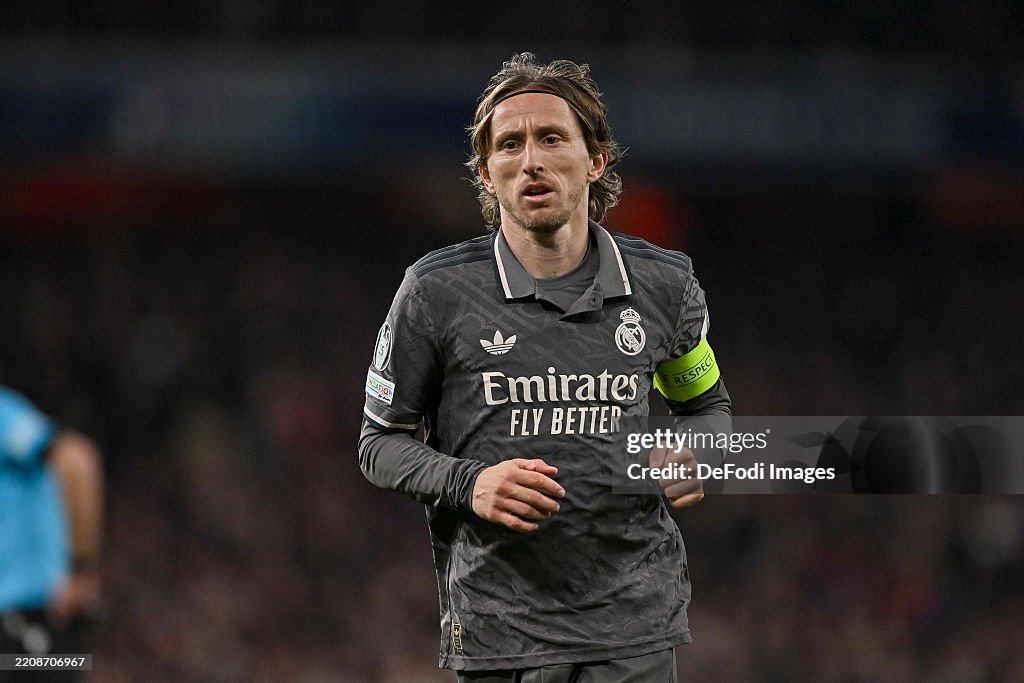Luka Modric is reportedly set to become a minority shareholder in Swansea City, further expanding the club’s increasingly diverse and ambitious ownership group.
While the exact size of Modric’s stake and the financial details of the deal remain unknown, his involvement would place him alongside existing co-owners Andy Coleman, Brett Cravatt, Jason Cohen who collectively hold 77.4 percent of the shares and Nigel Morris, who owns another 14 percent. The move would mark a significant step for both Modric and Swansea, a club currently competing in the EFL Championship and hoping to reclaim its place in the Premier League.
The ownership structure at Swansea underwent a dramatic shift last November when longtime majority stakeholders Jason Levien and Steve Kaplan sold their 74.95 percent share. American businessman Andy Coleman, already involved with the club, led the takeover and promised the beginning of a new chapter in the club’s history. Speaking after the change in control, Coleman described his vision of returning Swansea a club that last played in the Premier League in 2018 to the top flight of English football. His words resonated with supporters who have grown eager for a return to the days when the Swans played attractive, competitive football at the highest level. Coleman referred to the project as a dream, outlining clear ambitions for infrastructure development, squad investment, and long-term growth.
However, only four months after the takeover, Coleman surprised many by announcing he would step down as chairman at the end of the current season. Despite leaving that particular role, he confirmed he would remain involved in the club’s leadership as both a board member and co-owner, maintaining his influence behind the scenes. It is in this evolving ownership landscape that Modric now appears to be stepping in, bringing with him not only global name recognition but also a wealth of experience and footballing insight.
At 39, Modric continues to perform at an elite level for Real Madrid and has made no indication that retirement is on the horizon. Spanish media have recently reported that the Croatian icon is considering extending his contract with the Spanish giants, which is due to expire this summer. That means a transition into an executive or administrative football role does not appear imminent. Nevertheless, Modric’s decision to invest in Swansea suggests a growing interest in shaping the future of the game from beyond the pitch.
By doing so, he follows a noticeable trend among top-level footballers particularly those associated with Real Madrid who are moving into club ownership. Vinícius Júnior, his Real Madrid teammate, recently acquired a significant share in Portuguese second-division side FC Alverca. In February, the Brazilian forward and a group of investors took control of 70 to 80 percent of the club’s shares, signaling his own ambitions beyond playing. Kylian Mbappé, who is widely expected to join Real Madrid in the near future, also made a similar move, becoming the majority shareholder of Ligue 2 outfit SM Caen by securing 80 percent of the club’s ownership.
This growing trend reflects a broader shift in the mindset of modern footballers an increased awareness of their financial power, brand influence, and long-term opportunities in the sport. For Modric, joining Swansea City’s ownership not only represents a potential business venture but also allows him to stay connected to the game in a different capacity, potentially preparing the ground for future roles once his playing career eventually winds down.
Swansea, for their part, could benefit greatly from Modric’s involvement. Beyond the financial aspect, the presence of such a high-profile figure could attract new sponsors, partnerships, and even players. It would also lend additional credibility to Coleman’s original promise of a “new era,” giving fans a tangible symbol of ambition and renewal. With the club striving to regain its competitive edge in the Championship, having Modric onboard could be a game-changer both on the pitch and behind the scenes.
If the deal is finalized, the Croatian midfielder will become more than just a footballing legend he’ll be part of a growing group of elite athletes redefining what it means to shape the future of football from the inside out.


